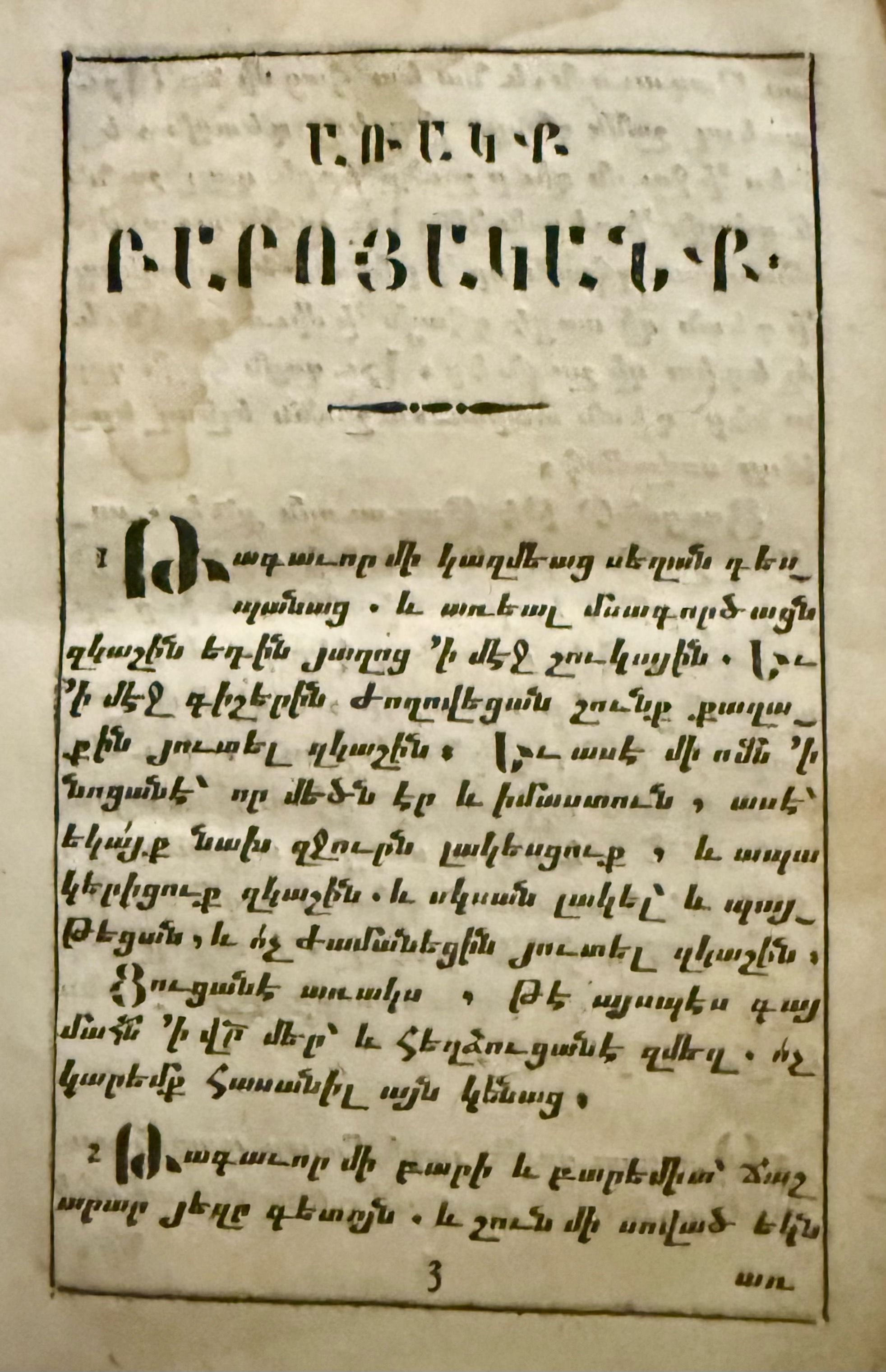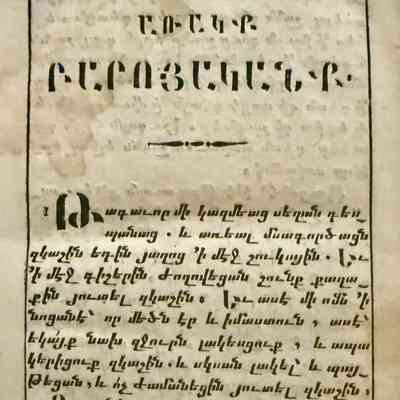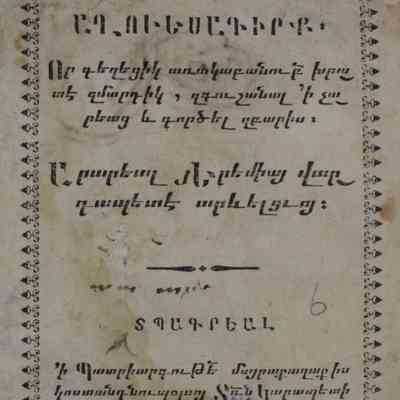Aghvesakirk (Vardan Aygetsi, 1827)
Name/Title
Aghvesakirk (Vardan Aygetsi, 1827)Secondary Title
Աղուեսագիրք: որ գեղեցիկ առակաբանու[թեամբ խրատէ զմարդիկ, զգուշանալ ի չարեաց եւ գործել զբարիսDescription
Vardan Aigektsi, a contemporary of Mkhitar Gosh, was a prominent fable writer and preacher. He was born in the village of Marouta, in the province of Tlouq, Cilicia. Educated at the Monastery of Arkakaghin, he earned the title of vardapet (doctor of the Church) and dedicated his life to preaching. In 1198, he took part in the coronation ceremony of King Levon II of Cilicia. From 1210 onward, he resided in the Monastery of Aigek. Vardan Aigektsi authored numerous discourses, letters, homilies, and fables. In the early stages of his preaching, he compiled Armat Havato (The Origin of Faith), a collection of excerpts drawn from Armenian doctrinal and rhetorical literature. Chronologically, it is the earliest surviving work of his. His homilies denounce adultery, sorcery, pride, theft, and other vices, while praising charity and defending human dignity. He envisioned a peaceful and harmonious society, marked by justice between rulers and their subjects. Aigektsi’s discourses are often accompanied by fables and parables, which serve to clarify, embellish, and strengthen his teachings. In doing so, he became the founder of the fable-discourse genre in Armenian literature. He later composed a separate collection titled The Fables of Vardan Vardapet, which became a popular work and continued to be copied in later centuries, often expanded with new fables. In 1668, an extensive compilation of his fables was published in Amsterdam under the title Aghvesagirk (The Fox Book), so named because the fox is the central character in many of the fables. Using allegories drawn from the animal world, Aigektsi reflected the complexities of human society and relationships. His Aghvesagirk echoes the imagery of medieval manuscript traditions. In his moral writings, Aigektsi drew from the fables of Aesop and others, as well as Armenian folk tales and popular stories. His fables are laced with sharp satire, particularly in his criticism of corrupt judges and immoral clergy (The Stealing Clergyman and the Widow). With biting humor, he condemns slander, deceit, folly, betrayal, cowardice, and numerous other flaws. Some of his tales—such as The Ox and the Horse—celebrate hard work and perseverance. Through his stories, Aigektsi sought to inspire resilience and courage in his people. In fables like The Wise Soldier, he teaches that one must enter the battlefield determined to win. Altogether, Aigektsi’s parables explore a wide range of issues, offering a vivid portrayal of medieval life and values. Note: The parables that are considered to be by Vardan Aygektsi are, in this edition, attributed to Vardapet Yeremia. The confusion arose because, in the title page of the 1698 edition, the publisher Jeremiah of Meghri included his name, and it was mistakenly taken to be the author’s — written as “From Holy Etchmiadzin, by Vardapet Yeremia.”Category
Books


